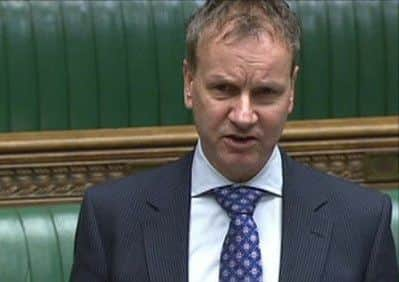How will '˜split' over Indyref2 affect the Yes movement?
Nicola Sturgeon’s party has such a reputation for internal discipline that any sign of strife is prone to spark claims of a full-blown crisis.
However, it is important not to understate the impact of recent rows among some of the independence movement’s most senior figures on the timing of any potential second referendum.
Advertisement
Hide AdAdvertisement
Hide AdPete Wishart, one of the party’s most senior MPs, has detailed the extraordinary levels of abuse he received from his own side for his suggestion that cooler heads should prevail when considering the timescale of that referendum.


The Row
The essence of the row arguably has its roots in the history of the Scottish National Party’s approach to devolution.
For decades, the party was split between ‘Gradualists’ who wanted to embrace devolution as a stepping stone to independence, and the ‘Fundamentalists’ who rejected devolution as a distraction and demanded independence or nothing.


Clearly, the Gradualists won the day, but ironically it is Jim Sillars, a man who has described himself as an ‘unreconstituted Fundamentalist’ who has been one of the most prominent voices for a delay in the timetable for the next referendum.
Mr Sillars, a former depute leader of the party, who has been a critic of the leadership of Nicola Sturgeon, says that another referendum shouldn’t be called until support for a seperate Scotland is consistently around 60 per cent.
With polls showing Yes struggling to make up ground on the 45 per cent achieved in 2014, Mr Sillars’ plan could see another vote kicked deep into the long grass.
The Impact
Already, the impact of the row is being felt in the party, with the timing of the referendum looking likely to dominate the race to fill the same role occupied by Mr Sillars.
The outsider for the SNP Depute Leader contest, Inverclyde Councillor Chris McEleny, has gone on the record supporting an independence referendum within the next 18 months.
Advertisement
Hide AdAdvertisement
Hide AdWhile still considered unlikely to improve markedly on the 3.4 per cent that he secured in the 2016 Deputy Leadership race, Mr McEleny’s flagship policy has lit a fire under what could have been a dull campaign and exposed differences within the SNP.
Mr McEleny’s stance has been backed by Western Isles MP Angus MacNeil, who has taken a different position on the issue than that of his long-time colleague Pete Wishart.
While the party won’t be paralysed by arguments in an internal election, the SNP has been marked for well over decade by internal discipline, and if the row becomes bitter, the party could once again find itself accused of ignoring ‘the day job’ to focus on independence.
Problems for the leader?
That would present a problem for the First Minister Nicola Sturgeon, who is still facing off accusations from rival parties that she places independence over all other policy matters.
It is arguably, however, a problem that the SNP leader could have avoided, had she not been so deliberately vague on what her ‘reset’ meant on the indyref2 question in the wake of the party suffering significant losses in the snap general election of 2017.
As Brexit continues to loom large over Scottish politics, Ms Sturgeon’s current position is that it is still more than likely that another referendum will take place before the next Holyrood elections are due to take place in 2021.
Theresa May has already tried to head that plan off at the pass by denying the Scottish Parliament the powers to hold another vote, a legal position that could yet be tested in Holyrood, or even in the courts.
By ending speculation on whether a second referendum is a short, medium, or long-term goal for her government, Ms Sturgeon could have ended a rare internal row in the party before it even begun.
By being uncharacteristically equivocal, The First Minister may have created a problem that could take considerable time and effort to solve.
